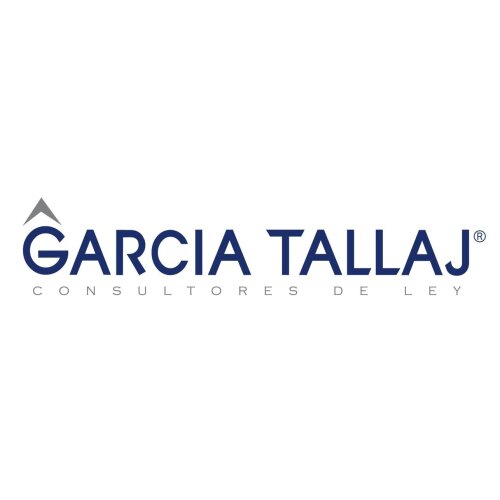Best Agriculture Lawyers in Sosua, Cabarete
Share your needs with us, get contacted by law firms.
Free. Takes 2 min.
List of the best lawyers in Sosua, Cabarete, Dominican Republic
About Agriculture Law in Sosua, Cabarete, Dominican Republic
Sosua and Cabarete, located on the north coast of the Dominican Republic, are areas well known for their tourism industry, beautiful beaches, and rich natural resources. While tourism is dominant, agriculture remains an important part of the region’s economy and local culture. The area is home to small and medium-sized farms that produce crops such as bananas, cacao, coffee, and tropical fruits. Agricultural activities in Sosua and Cabarete are regulated both by national Dominican laws and local ordinances to promote sustainable development, protect environmental resources, and benefit local communities.
Agriculture law in the Dominican Republic encompasses all legal matters regarding land use, water rights, crop cultivation, livestock management, environmental protection, export regulations, and labor rights as they pertain to farming and agribusiness. If you are operating, investing in, or inheriting agricultural land or business in Sosua or Cabarete, understanding the local legal landscape is essential for compliance and success.
Why You May Need a Lawyer
Agricultural activities and transactions can become complex from a legal perspective. Here are some common scenarios where individuals and businesses may need legal assistance regarding agriculture in Sosua and Cabarete:
- Purchasing or leasing farmland, including verifying clear land title or handling disputes
- Understanding and complying with environmental regulations and protected areas
- Drafting, reviewing, or enforcing contracts with workers, suppliers, or buyers
- Resolving labor disputes with farm workers or seasonal employees
- Navigating regulations regarding pesticides, fertilizers, and waste management
- Obtaining permits or licenses for specific agricultural activities
- Handling inheritance or transfer of agricultural land following family succession
- Negotiating with local cooperatives or agricultural associations
- Dealing with expropriation or eminent domain issues affecting your land
- Exporting or importing agricultural products and ensuring regulatory compliance
Legal advice can help prevent costly mistakes, protect your investments, and resolve disputes with minimal risk.
Local Laws Overview
Several key aspects of local and national law are especially relevant to agriculture in Sosua and Cabarete:
- Land Ownership and Use: Dominican law requires that titles to land be registered, and foreign individuals or companies must comply with certain conditions when purchasing property. Regularization of land titles is critical due to past inconsistencies in records.
- Environmental Regulations: Law 64-00 on Environment and Natural Resources governs the sustainable use of resources. Special permits are needed for activities that may impact rivers, forests, or protected coastal areas.
- Water Rights: Use of irrigation water from public rivers or aquifers is regulated, and permits are necessary for new wells or diversion channels.
- Labor and Employment: Dominican labor laws set out mandatory terms for wages, work hours, social security, and employee rights, especially for rural and seasonal workers.
- Pesticides and Chemical Usage: The Ministry of Agriculture and other bodies control which products can be used and how they are stored and applied to ensure food safety and public health.
- Export and Import: Licenses and sanitary certifications are required for many agricultural products, both for domestic sale and export to other countries.
- Taxation and Incentives: Some agricultural activities may be eligible for tax breaks or incentives under Dominican law, especially when promoting sustainable practices or rural development.
Frequently Asked Questions
What is the process for buying agricultural land in Sosua or Cabarete?
The process includes verifying the legal title, ensuring property boundaries are well defined, checking for existing liens or disputes, and registering the transaction with appropriate local and national authorities. Legal assistance is strongly recommended.
Are there restrictions for foreigners owning farmland in the Dominican Republic?
Foreigners can generally own land in the Dominican Republic, including in Sosua and Cabarete, as long as they comply with registration procedures and certain disclosure requirements.
What taxes apply to agricultural land?
Taxes may include annual property taxes, capital gains tax on sales, and income tax on profits. Some small agricultural holdings may be exempt or benefit from tax breaks.
How can I resolve a boundary dispute with my neighbor?
Boundary disputes are typically resolved through negotiation, mediation, or, if necessary, litigation. Legal documentation and surveys are essential to support your claim.
Do I need permits to use water for irrigation?
Yes, using water from public sources for irrigation requires a government permit. Unauthorized use can result in fines or other penalties.
What rules apply to hiring farm workers?
You must abide by Dominican labor laws, which set a minimum wage, maximum work hours, and mandatory benefits. Contracts, even for seasonal labor, should be in writing where possible.
How can I protect my crops from illegal logging or squatting?
Regular monitoring, clear signage, and working with local authorities to report encroachments can help. Legal action may be necessary against persistent violators.
What should I know about organic farming certification?
To market products as organic, you must comply with standards set by the Ministry of Agriculture and obtain appropriate certification. There are regulations on chemical use, soil management, and product labeling.
Are there incentives for sustainable agriculture?
Yes, there are often government programs providing technical support, tax incentives, or grants for projects promoting sustainable practices or rural development. Eligibility criteria must be met.
How do I export my agricultural products from Sosua or Cabarete?
Exporting requires registration with customs authorities, compliance with health and safety regulations, and sometimes obtaining certificates of origin or phytosanitary certificates.
Additional Resources
If you need further information or assistance, the following resources can be helpful:
- Ministry of Agriculture (Ministerio de Agricultura): Oversees regulation, certification, subsidies, and development programs for agriculture across the country.
- Ministry of Environment and Natural Resources (Medio Ambiente): Issues permits and enforces environmental protection laws relevant to farming and land use.
- Local Ayuntamiento (Municipal Government): Handles local land use permits, property records, and compliance issues.
- Dominican Agribusiness Board (Junta Agroempresarial Dominicana): A hub for agricultural producers and exporters, offering services and information on regulation and best practices.
- Legal Aid Centers: Provide free or low-cost advice, especially for small farmers and rural residents.
Next Steps
If you believe you need legal assistance regarding agriculture in Sosua or Cabarete, follow these steps:
- Gather all relevant documents such as land titles, contracts, permits, and correspondence related to your agricultural activities.
- Clearly define your legal questions or concerns, so you can communicate your needs when contacting a lawyer.
- Search for a local lawyer or legal firm specializing in agricultural or real estate law, preferably with experience in the Sosua and Cabarete regions.
- Schedule a consultation to discuss your situation in detail and understand your rights and obligations under local law.
- If necessary, seek a second opinion or consult additional resources listed above for broader perspective.
Legal assistance can help you navigate the complexities of agricultural law, protect your interests, and ensure the sustainability of your activities in Sosua and Cabarete. Early legal intervention can prevent disputes and set your endeavor on a strong footing.
Lawzana helps you find the best lawyers and law firms in Sosua, Cabarete through a curated and pre-screened list of qualified legal professionals. Our platform offers rankings and detailed profiles of attorneys and law firms, allowing you to compare based on practice areas, including Agriculture, experience, and client feedback.
Each profile includes a description of the firm's areas of practice, client reviews, team members and partners, year of establishment, spoken languages, office locations, contact information, social media presence, and any published articles or resources. Most firms on our platform speak English and are experienced in both local and international legal matters.
Get a quote from top-rated law firms in Sosua, Cabarete, Dominican Republic — quickly, securely, and without unnecessary hassle.
Disclaimer:
The information provided on this page is for general informational purposes only and does not constitute legal advice. While we strive to ensure the accuracy and relevance of the content, legal information may change over time, and interpretations of the law can vary. You should always consult with a qualified legal professional for advice specific to your situation.
We disclaim all liability for actions taken or not taken based on the content of this page. If you believe any information is incorrect or outdated, please contact us, and we will review and update it where appropriate.









